Great Lakes Neighborhood Articles
September 2024
Recovery Friendly Workplaces
There are an estimated 23 million Americans in recovery who are not only living healthy lifestyles but are also making positive contributions to society. Community connections, including access to stable jobs, steady paychecks, and supportive workplaces help sustain recovery. These are all key parts of recovery capital and components of recovery-oriented systems of care.
In one Wisconsin rural county, a partnership between the peer recovery support center Biehl Bridges to Recovery and UW–Madison Extension is supporting more workplaces in hiring and retaining those in recovery with their Recovery Friendly Workplaces Marinette project. Recovery Friendly Workplaces (RFW) is an initiative for employers to better understand policies and practices that can help make a work environment supportive. RFW offers evidence-based information for Marinette County employers who want to make foundational changes to the way they hire, engage with, and support employees living with or seeking recovery from substance use. The project, funded by the Wisconsin Partnership Program, is led by Jen Park-Mroch, principal investigator, and Meghan Rutherford, project manager. Jen and Meghan designed the RFW program to play a vital role in addressing the social determinants of health, specifically economic stability in Marinette County.
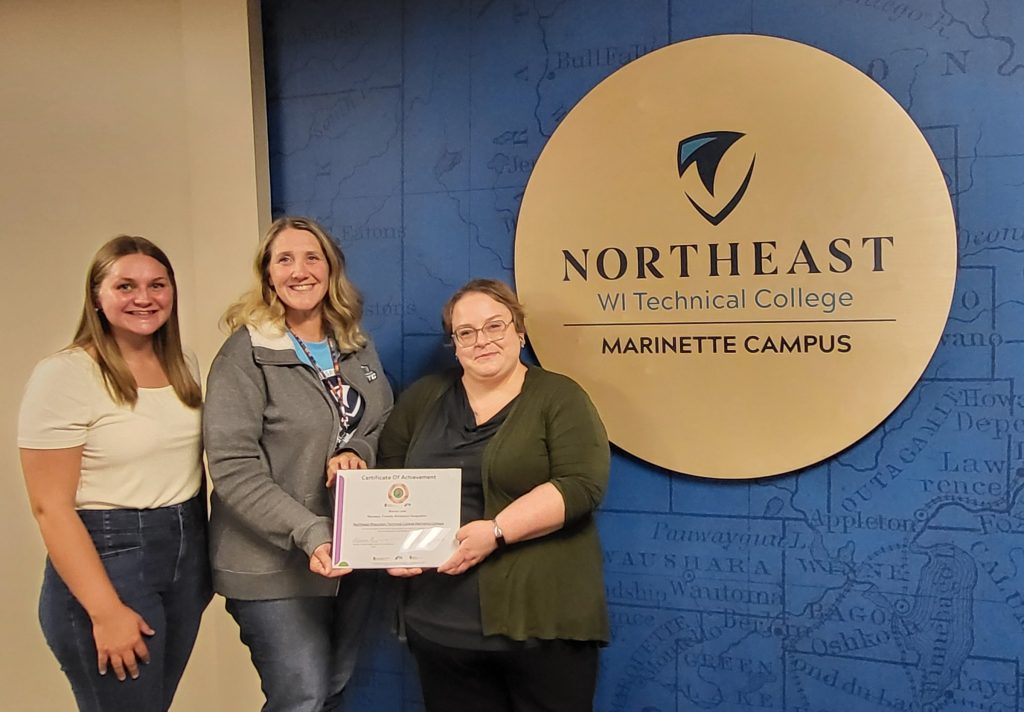
Peer Recovery Coach and RFW trainer Beka Bussineau from Bridges to Recovery believes that people in recovery often face the stigma of a criminal record when applying for jobs. Hopefully, RFW can address this issue and “We can start to change minds about giving people those second and third chances that they need is what I’m most passionate about.” Many businesses have a zero-tolerance policy to failed drug screens. Beka says, “When we go into these businesses, we understand that there are safety concerns that they have to address, that they have to have these certain safety protocols. What we’re really trying to do is offer them an extra layer of support for that employee. Where perhaps it is the case that the employment needs to end, but maybe that with the resources we can offer, they [the employee] could seek recovery and then reapply.” Another bright spot that Beka and her colleagues are discovering is that “Some of these businesses that we’ve been talking to already do these good things for their employees [e.g., RFW policies, invest in wellness, etc], and that what we’re doing in return is coming in and validating that and making that more public and visible to the public.”
In August, Beka and Danielle Lemke (UW Madison Extension Marinette County) worked together to certify the Northeast Wisconsin Technical College Marinette Campus to be recovery friendly by assessing their current policies and practices, training senior staff and human resources, and making the commitment to be recovery friendly. NWTC Marinette Dean Cindy Bailey says, “Being listed as a recovery-friendly workplace is important for NWTC Marinette because it demonstrates a commitment to supporting employees and students in their recovery from substance use disorders or mental health challenges. This designation helps to foster a healthier, more inclusive environment, reduces stigma, and promotes well-being for all. It also enhances the institution’s reputation as a caring and supportive place to work and study, attracting both talented staff and students who value a community-oriented approach to health and wellness.”
For more information about Recovery Friendly Workplaces, please contact Jen Park-Mroch, Division of Extension Health and Well-Being State Specialist at jenniferpark@wisc.edu.
June 2024
Revisiting TASC Part 2: How Asset-Mapping Can Change Our Approach to Coalition Work
Dr. Michael Wilcox, alongside his Taking Action to Address Substance Use in Communities (TASC) team members Dr. Nicole Adams and Elisa Worland, LSW, explained the challenge of recovery in communities with an anecdote from the Indigenous recovery community called The Healing Forest. The story goes: if a tree is sick in the forest and you take that tree away to heal it, then put the tree back in the same place it was before, the tree will get sick again. “Individuals can’t thrive in recovery if the community isn’t a thriving place and doesn’t promote healing,” Dr. Wilcox elaborated.
There can be many reasons why a community is not thriving. The beauty of TASC is its flexibility, meaning it is useful to communities who struggle to thrive for a variety of reasons. Key to this flexibility is TASC’s asset-based approach to community work. Dr. Adams created an asset mapping technique unique to TASC that encourages communities to recognize what they have rather than what they do not have. Rural areas can suffer from a deficit mentality when it comes to substance use work, which can push systems to focus more on what they do not have rather than what they do have. Instead, TASC brings community members, agencies and organizations together to see that recovery is an option and that can be achieved by coming together, gathering community assets, and working toward feasible goals. This reframing changes the culture of coalition work. Ms. Worland described the effect she’s seeing as a result of asset-based organizing, “I’m beginning to see effects in many areas where people are rising up and saying, ‘I can do this’. The culture is shifting overall.”
By first creating a visual map of the existing recovery system, identifying gaps and barriers to address, and then considering community resources, TASC encourages creativity in the collaborative process. The energy of coalition work completely changes when organizations know what they have and are asked what they want to contribute, rather than being burdened by specific asks from coalition leaders. Asset mapping captures individual pathways of recovery and highlights both gaps and barriers that inform the coalition’s work. These maps lend themselves to developing projects that span a few months, making better use of limited resources, and creating observable change that inspires and facilitates collaboration among organizations. If you’re an extension professional looking to learn about implementing TASC curriculum, register for TASC’s upcoming Train the Trainer workshop in Madison, Wisconsin August 7-8 2024.
April 2024
Revisiting TASC Part 1: Expanding to Communities Across the Region
Taking Action to Address Substance Use in Communities (TASC) is a multi-state, multidisciplinary collaborative program meant to provide the tools necessary for communities to develop robust Recovery Oriented Systems of Care. We spoke to the Purdue team behind TASC – Dr. Michael Wilcox, Dr. Nicole Adams, and Elisa Worland, LSW – to learn more. The team, fitted with an economist, a nurse, and a social worker by training respectively, reflects TASC’s multidisciplinary and inclusive approach.
The TASC curriculum is designed for use in rural and urban places. The group using the curriculum defines the scope of the community. TASC could be implemented in a suburb, an urban neighborhood, or a rural county, due to its flexibility and adaptability. Initially, TASC was developed to address the 2020 opioid crisis in the North Central Region[AS1] . However, as the team was developing the curriculum, people from across the country expressed interest in being trained to use the curriculum to address all types of substance use.
The TASC curriculum centers on developing a Recovery Oriented Systems of Care to organize a coalition to act within a community. “Drug task forces have existed in my area for over 20 years and were not solving the opioid epidemic or even making a dent,” Dr. Adams shared, “but the TASC coalition model was making a big dent.” A Recovery Oriented System of Care describes a way of viewing an entire community as a system, with interconnected organizations such as hospitals, schools, and police departments. In the TASC model of a Recovery Oriented System of Care, individuals are guided toward recovery from substance use disorder regardless of where they enter the system. Common questions that arise in that process are, “Are there barriers to recovery? Are there gaps in the system? What’s missing in that system to help facilitate a smooth pathway to recovery?”
To develop this community level system of recovery-oriented care, TASC is designed to help 1) communities without a coalition put one together, 2) those with an existing coalition to incorporate Recovery Oriented System of Care ideas, and 3) those with multiple coalitions work together effectively and efficiently. The hallmark of TASC is its flexibility. “You’re not being told what to do,” the team emphasized, “you’re being guided on how to create your own thing.” If you’re an extension professional looking to learn about implementing TASC curriculum, register for TASC’s upcoming Train the Trainer workshops in Minneapolis, Minnesota May 16-17 2024 or Madison, Wisconsin August 7-8 2024.
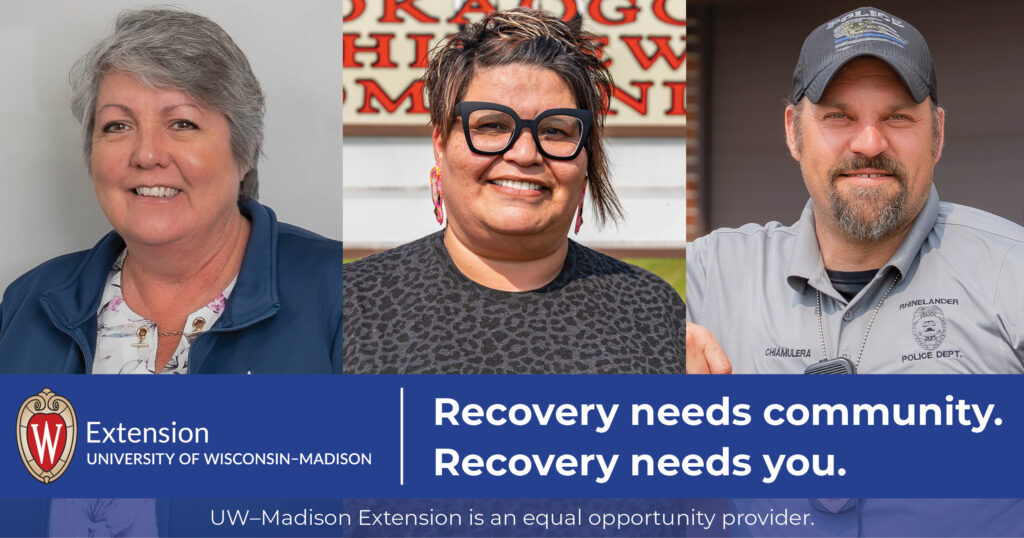
Stigma Campaign from North Eastern Wisconsin
For the past several years, stigma has been hailed at the number issue that communities feel that needs to be addressed. Stigma can affect the quality of care those with substance use disorder receive, affect discrimination and perpetuation of stereotypes, and promote negative feelings about oneself. In Northern Wisconsin, several coalitions identified stigma as a number one barrier to substance use disorder treatment. To combat stigma, it’s important to promote understanding and empathy for those struggling with substance use disorders, and to advocate for policies that support their recovery
In 2023, funded by a SAMHSA grant, UW Madison Extension and four coalitions, the Community Coalition of Forest County, Healthy Community Action Team(Lac du Flambeau Band), Minobimaadiziiwin Coalition (MINO), and Northwoods COPE (Community, Outreach, Prevention and Education) began collaborating on a campaign to address opioid stigma in their communities. Guided by Extension’s Health Communications Program Manager , Emily Latham, the 13 step process, coalition representatives (Alyssa Knoll, Angel Swenson, Jennifer Chiamulera, Michelle Gobert, Sharon Krause, and Terri Kolb) and Extension staff members (Jen Braun and Jen Park-Mroch) identified the target audience, gathered data from stakeholders, drafted key messages and developed a campaign to encourage community helpers (police, teachers, etc.) to see themselves as part of the recovery process. Materials developed include social marketing messages and billboards. The project used community member photographs to further emphasize that the community helps the community.
Materials are available for organizations to use with permission. Please contact Jennifer Park-Mroch for more information.
March 2024
Mental Health Education Initiatives
Tammy collaborates with Pike County school districts to provide essential mental health education to K-12 students. Her approach includes engaging activities tailored to different age groups and incorporates feedback for continuous improvement. Through the ROTA-RC-funded Generation Rx curriculum, Tammy equips participants with vital knowledge about safe medication practices and advocates for better health management. This 50-minute, stand-alone, evidence-based program can be adapted to specific audiences.
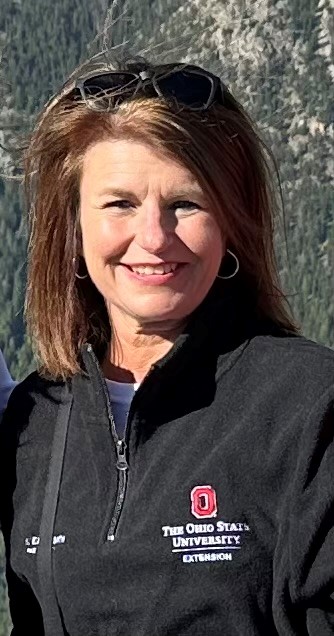
Although most of the mental health education is provided to youth and parents through education partners, Tammy also works with older adults and has been able to adapt her programming to their needs, integrating activities such as pill disposal opportunities and other activities to help participants manage their health effectively.
In addition to mental health education, Tammy oversees the implementation of the ROTA-RC-funded Botvin Life Skills program, which addresses life skills essential for students from third grade through high school. Recognizing the need for flexibility, especially during the COVID-19 pandemic, Tammy collaborates with teachers to tailor the program to meet the specific needs of students each academic year.
Supporting Families Through Active Parenting
An additional ROTA-RC-funded program, the Active Parenting program is an evidence-based parenting education program designed to support students and caregivers in developing effective parenting skills and strategies. It provides resources and guidance to help parents navigate the challenges they may encounter while raising children. Despite challenges in in getting parents to enroll, Tammy reports that participants often express relief in finding support and connecting with others facing similar parenting challenges.
One of the most successful programming efforts she’s led with Active Parenting was a women’s residential rehabilitation center that provided supported community housing post incarceration.
Addressing Vaping and Social Media
The Vaping Diversion program in Pike County, now in its second year, addresses the increase in youth smoking and vaping offenses. Working with schools and juvenile justice partners, Tammy provides monthly 45–50-minute presentations to middle and high school students who have committed first tobacco-related offenses. Utilizing a curriculum from the Stanford Medical Community and inspired by a similar 4-H teen diversion program, the program goal is to help teens learn the dangers of vaping and smoking.
Following the success of the Vaping Diversion program, the juvenile court and education partners enlisted Tammy’s expertise to address concerning trends in juvenile delinquency and social media use. Leveraging her rapport with youth, Tammy introduced the Social Media Diversion program, conducting 45–50-minute open-ended discussions at middle and high schools. This program focuses on addressing social media-related behaviors and offenses, incorporating examples, experiences, and content from relevant literature. While in its first year, the project aims to expand to more districts in its second year.
Tammy’s commitment to education and community well-being makes her a pivotal figure in Pike County, Ohio. By providing engaging and relevant educational initiatives, she addresses immediate concerns and equips community members of all ages with tools they need to thrive and all areas of their lives.
February 2024
Extension Helping to Extend Total Wellness Through Alternative Education
The Ohio State University Extension campus is part of the growing state Extension Cooperatives, extending its reach to the community by incorporating modern, evidence-based approaches to total body wellness. These approaches prioritize the participant’s role in their own healing journey, focusing on both prevention and recovery-based outcomes. Programming strategies are tailored to appeal to participants across various life stages, health continuums, and needs.
Ken Stewart, a Family and Consumer Science Educator at The Ohio State University, shared his experiences as both a participant and trainer in three successful programs within his community. These programs offer virtual and in-person education, particularly valuable in areas where proactive health services may be limited.
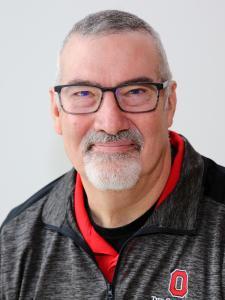
Tai Chi for Arthritis is a program that utilizes the Sun Style of tai chi, known for its smooth, flowing movements and gentle postures. It incorporates mindfulness, meditation, and breathwork, aiming to improve balance, posture, and joint strength. The Ohio State University Extension offices support 16 sessions, available 2 times per week for 45 minutes to 1 hour, either virtually or in-person. This program has been successfully delivered to various age groups, including older adults as part of falls prevention programming and younger students in elementary school settings. Despite differing rates of uptake among age groups, instructors find that all participants benefit physically, mentally, and emotionally.
Laughter Therapy, also known as laughter yoga, utilizes humor to relieve pain and stress and improve well-being. It operates within four key domains: general health management, pain management, mental health management, and trauma recovery. The F.I.T. model, which engages participants in goal setting through mental imagery, is employed during sessions lasting 20 to 30 minutes. This program is currently under blind peer review to ensure high quality.
The Silent Disco program in rural Ohio explores the therapeutic potential of music for individuals with dementia and Alzheimer’s disease. Participants are provided with personalized playlists relevant to their life experiences, aiming to improve mood and social engagement. Although still in its pilot stage, early indications suggest positive outcomes, such as increased social interaction and engagement.
At one Silent Disco site, a family member shared, “Using the headsets brought our family together again. My mother became engaged, and dad was delighted to see her smile once more.” Ken mentioned that the family participated in the music headset program during the recent Christmas holiday. However, it’s important to highlight that the program comes with a significant cost. On average, for just 25 headphones and playlists alone, costs around $3,000. Additionally, the program necessitates an onsite activity director to organize and assist with activities. Home caregiver kits, inclusive of 6 headphones, costs closer to $900.
These innovative programs exemplify The Ohio State University Extension’s commitment to community-based programming and advancing holistic wellness approaches. Through partnerships and ongoing evaluation, they continue to make a positive impact on individuals and communities across Ohio.
October 2023
Harm Reduction Vending Machines in Bois Forte
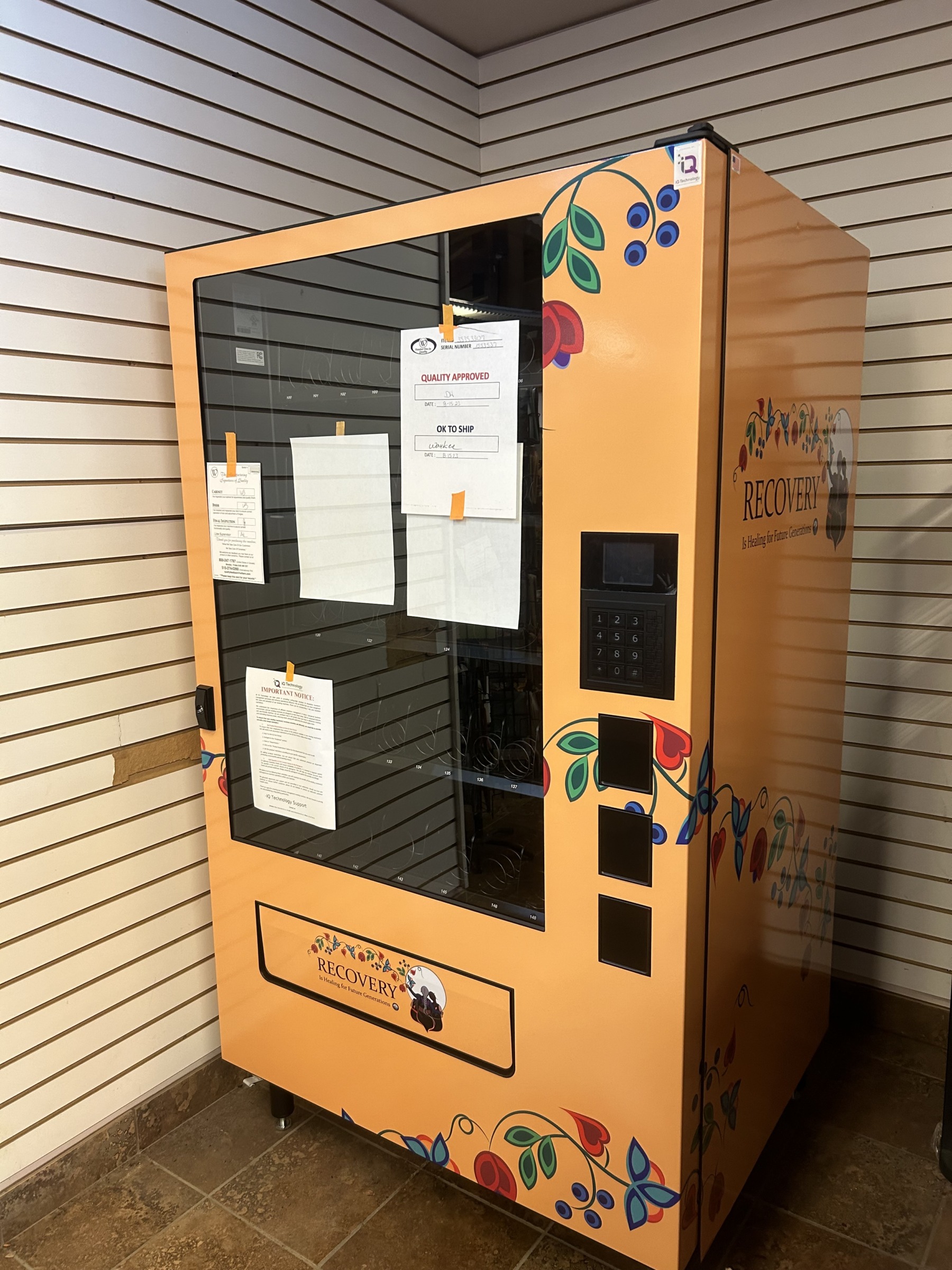
Vending machines offering free harm reduction supplies are now active in Bois Forte, a Tribal nation in Northern Minnesota. These vending machines will provide items such as naloxone, fentanyl and xylazine test strips, and first aid supplies to the community.
The machines are the result of a grant from the Health Services and Resources Administration awarded to University of Minnesota – College of Pharmacy and Johns Hopkins University. Pam Hughes and Toni Wakemeup will serve as managers of the vending machines and stock supplies when they run low. Hughes hopes the machines will save lives and connect people to services who might otherwise have no support. Dr. Laura Palombi, of the College of Pharmacy, says that the team behind the machines learned a great deal in developing and implementing this project. “We are really hoping that we can work with other rural and Tribal communities that might benefit from access to harm reduction and public health supplies,” says Palombi. Read more about the harm reduction vending machines.
September 2023
OSU Extension Builds Resilience Pathways in Scioto County

Dennis DeCamp, Educator/Family and Consumer Sciences, Abbie Mowen,
Educator/4-H Youth Development, and (not pictured)
Treva Williams, Area Leader & Educator/Family and Consumer Sciences.
The Scioto County Extension team has represented the Ohio Youth Resilience Collaborative (OYRC) through implementation of school and family evidence-based prevention programs. Project partners have been implementing Mind Matters for over four years in one local school and will be expanding to three in the coming years. Mind Matters’ practical hands-on lessons explore the effects of adversity and toxic stress, before moving into activities that facilitate the healing process. Each lesson is based on overcoming adverse childhood experiences (ACEs) and includes activities on increasing hope, overcoming adversity, and building resilience. Mind Matters’ lessons address self-soothing and regulating emotions, managing stress effectively, developing empathy and improved personal communications, creating a code of honor and life of intention, building and using a support system.
In addition to this school-based program, Scioto County’s OYRC team offers Active Parenting of Teens to parents and caregivers of teenagers during afterschool hours. Caregiving can be a barrier for participants to attend parenting classes, so Scioto County also offers a 4-H Special Interest Club (SPIN) for youth of various ages. The program initiatives also include a messaging campaign around developing resilience traits at the school and community level. They have hosted annual family nights to ensure families have access to resources for mental health promotion and substance us prevention.
The aim is to provide youth with critical protective factors at the school and community level in order to bolster resilience. Beyond program delivery, developing community assets and resources is integral to building sustainable interventions. Scioto County achieves this by supporting asset building intervention at the individual level through Mind Matters, at the family level through Active Parenting, and at the social-environmental level through a school-and community-wide messaging campaign.
August 2023
Northwoods Coalition (Northern Wisconsin Region)
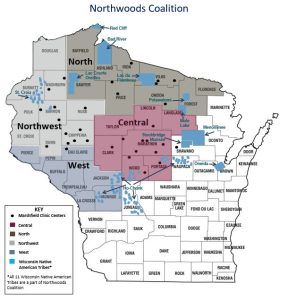
Formed through a partnership between Marshfield Clinic Health System (MCHS) and several community coalitions in 1995, Northwoods Coalition (NWC) is the largest and oldest network of coalitions dedicated to substance use prevention in Wisconsin. Representatives from coalitions in a 35-county region, including the 11 Wisconsin Tribal Nations, serve on a non-governing advisory board to help shape policies, practices and programs to address public health issues arising from use of alcohol and other drugs.
The Northwoods Coalition produces an informative newsletter every other week, highlighting the latest information in substance use training, updates and tools throughout the state of WI.
Head to their website and check out their activities!
Farmer Angel Network (Southern Wisconsin Region)
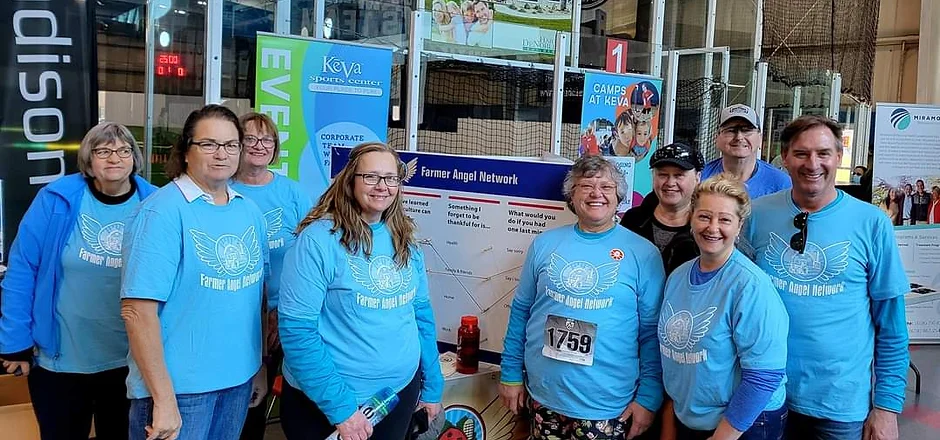
In the fall of 2018, Sauk County pulled together after a farmer died by suicide. The community reached out to the family to listen as they worked through the emotions that followed. They created a safe space to come together and talk about farm stress and suicide. They brought in speakers and resources. Within months, Farmer Angel Network (FAN) was formed as a result of these efforts. Six years on, Farmer Angel Network continues to build strong rural communities that support agriculture by providing education, resources, and fellowship with a focus on mental health.
This group includes farmers, healthcare workers, veterinarians, Public Health, Land and Water Resources, Extension Educators and Specialists, Church members, HCE members, and many others from the local community. It has grown into surrounding counties, its message reaches across the US, and the group’s message and activities have been broadcasted and filmed by national and international media to draw attention to the world wide mental health crisis in agriculture. Governor Evers met in person with the group, at the chairperson’s farm, early this summer to talk about farm mental health initiates.
Farmer Angel Network is one organization that is seeking to help communities get back to these practices and help neighbors get help when they need it. The goal of Farmer Angel Network over time is to end isolation and help communities come back together. Head to Farmer Angel Network’s website to see how they are educating, outreaching and promoting positive health and working to end mental health stigma.
June 2023
The Indiana Recovery Network
The Indiana Recovery Network (IRN) is a statewide Recovery Hub in Indiana that aims to bridge gaps in services and ensure that recovery supports and services are accessible to everyone. IRN was created in 2017 through a SAMHSA grant awarded to the Indiana Addictions Issues Coalition (IAIC), a subsidiary of Mental Health America – Indiana.
IRN serves as a statewide network for recovery-related resources and organizations, including Recovery Community Organizations (RCOs). IRN provides information and resources for individuals seeking or in recovery, as well as support for grassroots recovery communities. “Often people new to recovery don’t know where to start when they’re seeking help,” notes Heather Rodriguez, IRN Director. “We created a website to make it easier for people seeking recovery support in Indiana to find out what resources were available.”
Additionally, in April 2020 IRN launched its Regional Recovery Hub program in response to COVID-19 challenges. This program provides peer support, referrals to external organizations, and responds to referrals from corrections. IRN Director Heather Rodriguez explains, “At the time, organizations were closing doors and with reduced capacity, there was a concern that people would lose connection to services. The state came to us to explore what to do to address this need. It was intended to be just a six-month program, but we’re now in our third year and will continue for another year with state funding.”
Learn more about Indiana’s Recovery Network
May 2023
Northern Michigan Substance Abuse Services (NMSAS)
Northern Michigan Substance Abuse Services (NMSAS), is one of a number of programs that Michigan calls neighbor. They do free trainings and presentations for the recovery community and beyond to get more people involved, and to access and share resources with each other. Each Tuesday, Wednesday, and Thursday they also host a Virtually Inspired Recovery series. Tuesday and Thursday is a support group and Wednesdays they bring in a speaker to talk about what they do, as well as learn what other organizations are doing and to make connections. NMSAS hosts a Recovery Coach check-in every other week to support Recovery Coaches and share best practices. They offer a Recovery Messaging Training, Ethics trainings, Advocacy trainings and more.
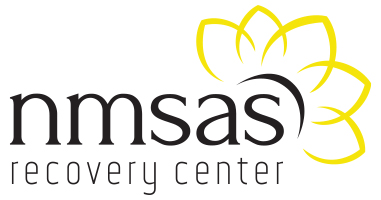
Head over to NMSAS’ site discover more about the Recovery Center’s great work
April 2023
Mission Restart
Cynthia Baade, President of Mission Restart, works to ensure everyone has a place to turn to for support in their journey toward recovery. Baade founded Mission Restart in response to the pandemic-related shutdown of recovery meetings and loss of support for individuals recovering from substance use disorder. According to Baade, many people felt isolated and lacked the support to continue their path toward recovery. “A lot of people were saying that they felt like they didn’t have anybody to reach out to,” says Baade.
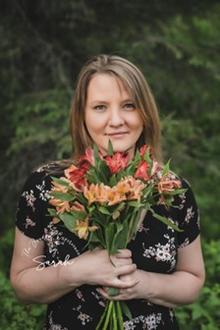
Thanks to C.O.P.E’s provision of over 500 customized cards discussing safe use tips for drugs and highlighting other support and resources in the area, Mission Restart now provides harm reduction information in addition to their weekly meetings, peer recovery services, and 24-hour support line for those in need.
Head on over to the University of Minnesota Extension to discover more about the Changemaker retreats and the project.
March 2023
The HOPE Alliance
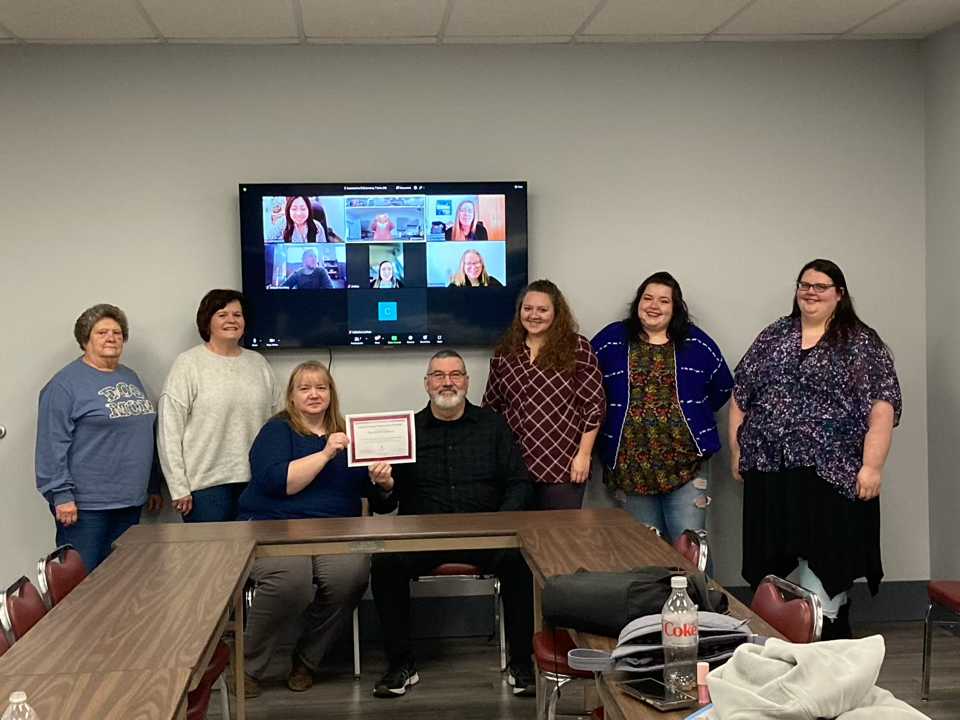
The HOPE Alliance of Monroe County, Ohio is a community coalition with a goal of increasing protective factors against substance use, mental health issues, and suicide. The acronym HOPE stands for “Helping Others through Prevention and Empowerment”. According to the Ohio Department of Health, 2020 had the highest rate of overdose deaths ever recorded in Ohio. Monroe County is rural with a population of only 13,329 residents; however, the average suicide rate is 18 per 100,000 (compared to 13 per 100,000 for Ohio).
The HOPE Alliance meets monthly using a hybrid meeting model with some coalition members meeting in person and others joining the meeting via Zoom. The coalition is composed of representatives from several different community agencies as well as concerned citizens. Some of the agencies represented include the local Mental Health Recovery Board, Student Services, Veteran’s Service Agencies, the Health Department, and Ohio State University Extension as part of the Ohio Youth Resiliency Collaborative. Some examples of initiatives of the HOPE Alliance are an annual mental health awareness walk, Botvin Lifeskills training for all seventh-grade students in the county, guest speakers, parenting education, support services for families of overdose/suicide victims, and social media awareness campaigns. In January 2023, the HOPE Alliance was awarded Outstanding Community Partner Award at the Ohio Youth Resilience Collaborative’s Fourth Annual Summit.
February 2023
Tribal Training and Technical Assistance (TTA)
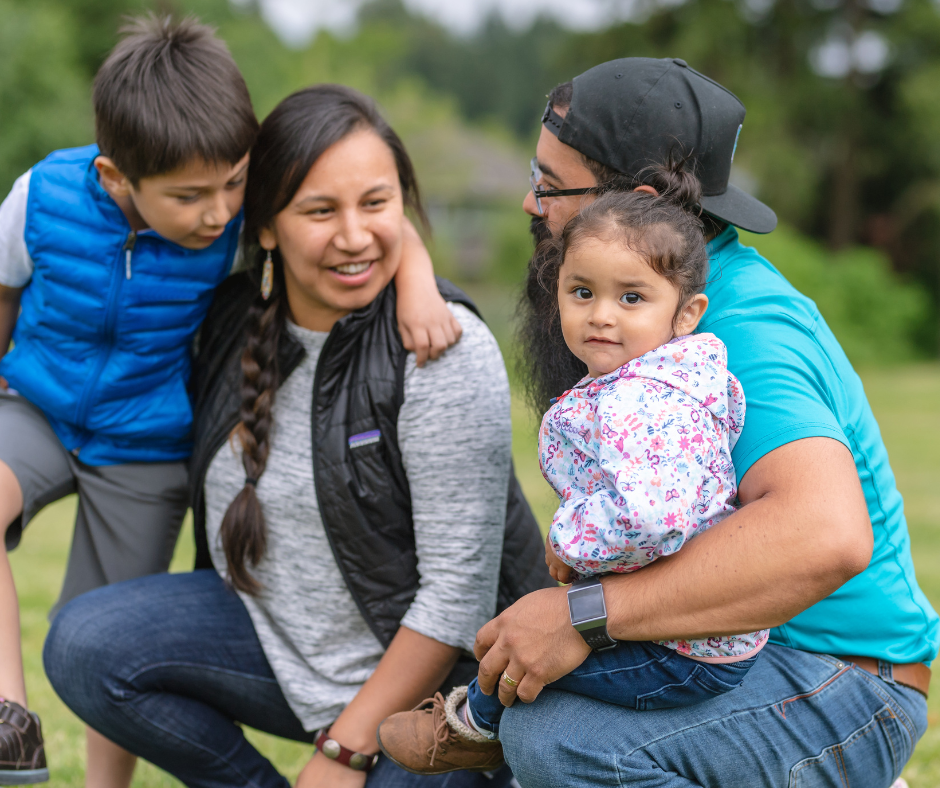
Wisconsin is one of three states in the Great Lakes region that lives in community with tribal nations. Minnesota and Michigan also engage and build leadership with rural and urban Native American neighbors. These partnerships uphold and protect the traditional values, communities, and families of our First Nations People, as well as the relationships we have as neighbors and communities for many future generations to come.
By highlighting the work of tribal partners and professionals, we can help elevate the importance of utilizing their experience to engage audiences of need to help provide the right resources, at the right time, and in the right ways. The Tribal Training and Technical Assistance (TTA) Center has a mission to strengthen and promote systematic behavioral health practice improvements for Native providers in order to honor and contribute to the health and well-being of tribal and urban Indian communities, as well as training non-Native providers using culturally informed practices so that communities have the resources to care for their people in the most culturally informed and knowledge – based way and Native providers can determine how to integrate western practices into their traditional methods.
Approximately 120 bands of Native people have occupied the Great Lakes region over the course of history. There is a trail of historical trauma that our First Nations people face as a collective, through many generations. The effects of the traumas inflicted on groups of people because of their race, creed, and ethnicity can be passed down through generation of descendants. As a result, many people in these same communities experience higher rates of mental and physical illness, substance abuse, and erosion in families and community structures. Persistent cycles of trauma can cause damage to families and communities. Today, 34 diverse, sovereign indigenous nations supporting Native history, artistry and living culture are learning and growing in partnership, often in collaboration with other diverse groups, how to heal through reconnection to cultural practices, family ties and indigenous community bonds.
Continue to look for ways to expand your practice to be inclusive, to support the diverse needs of your communities, strive for equity within your services and build access by being more informed whenever and wherever you can. Need I.D.E.A.s on how to support the needs of your Native American communities around substance abuse and mental health? The upcoming events calendar at the National American Indian and Alaskan Indian ATTC is a great place to start!
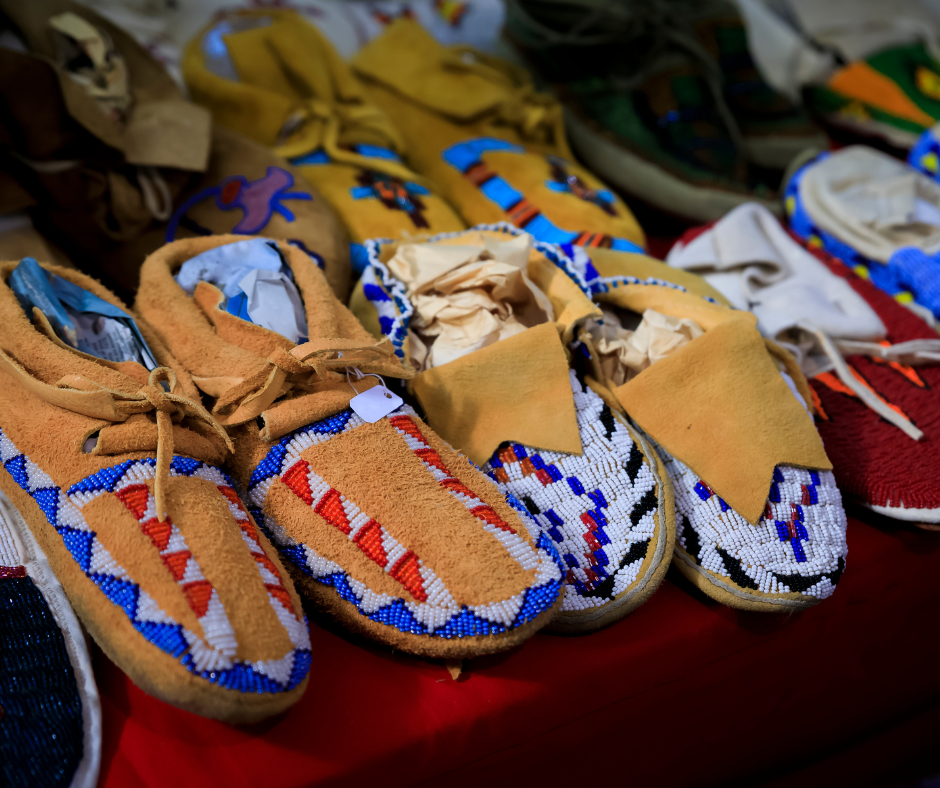
Your actions leaves your footprints in the sands of time, for your generations to gain or suffer from.
– Sandra Nseabasi Etim





